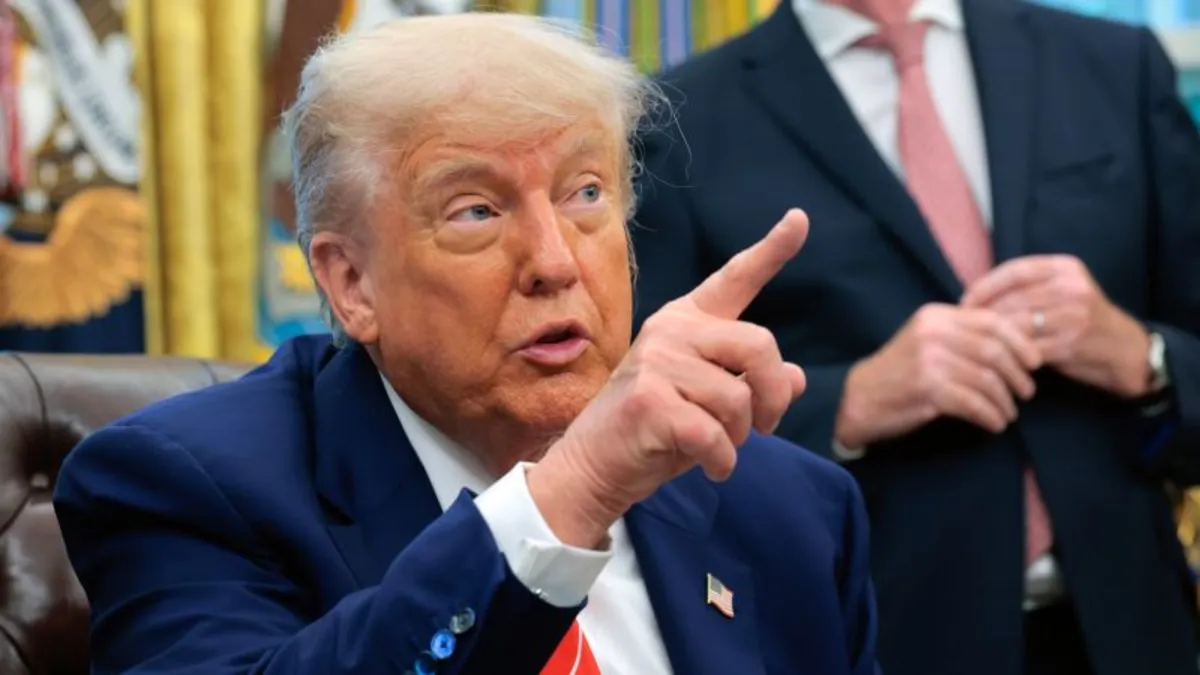
In a surprising turn of events, President Donald Trump has emphasized a message of self-sacrifice regarding the number of dolls American children should own, while simultaneously announcing a trade deal that favors luxury vehicles. On Thursday, Trump celebrated the US-UK trade framework, which includes provisions to lower tariffs on luxury cars imported from the United Kingdom. He clarified that his intention was not to encourage “super-luxury” brands like Rolls-Royce, Bentley, and Jaguar to manufacture cars in the United States.
According to a fact sheet released by the White House, the Trump administration has already agreed to reduce tariffs on the first 100,000 vehicles imported from the UK each year, bringing them down from 25% to 10%. However, additional vehicles will still face a significant 25% tariff. Trump mentioned, “We took it from 25 to 10 on Rolls-Royce because Rolls-Royce is not gonna be built here. I wouldn’t even ask them to do that. You know, it’s a very special car and it’s a very limited number too,” while announcing the agreement in the Oval Office.
The United Kingdom exported approximately 90,000 cars to the United States last year, making it the sixth-largest source of imported vehicles, accounting for only 1% of the total imported cars. The US Commerce Department reported that the value of these imports reached $12.3 billion, which indicates an average price of over $135,000 per British vehicle. Trump's comments highlighted that these luxury brands are not mass producers; rather, they create a limited number of high-end vehicles. He stated, “It’s not… one of the monster car companies that makes millions of cars. They make a very small number of cars that are super-luxury… some very special cars.”
In addition to Rolls-Royce, other luxury British brands that could benefit from the lowered tariffs include Land Rover, Aston Martin, and Mini. This maneuver effectively reduces the cost of importing vehicles that are not widely purchased by the average American, while maintaining higher tariffs on more affordable car brands that are popular among consumers.
University of Michigan economist Justin Wolfers expressed skepticism about the deal's intent to benefit everyday Americans, stating that it primarily lowers prices for high-end luxury cars like Rolls-Royces and Aston Martins. He pointed out, “no other consumer good received carveouts” from the US-UK trade framework, raising concerns about the broader implications for consumer goods.
In an unexpected twist, Trump proposed a 100% tariff on toys manufactured by Mattel after the company's CEO, Ynon Kreiz, claimed that American manufacturing of toys would lead to higher prices for consumers. Trump’s harsh response included a warning that such tariffs could eliminate Mattel's sales in the United States, their largest market. “We’ll put a 100% tariff on his toys, and he won’t sell one toy in the United States,” Trump stated.
Experts warn that a 100% tariff on a leading toy manufacturer could significantly increase toy prices for American families, making it challenging for parents to purchase popular items like Barbies and other toys. Retailers typically prepare for the holiday shopping season well in advance, which raises concerns about the availability of these products.
Hedge fund billionaire Ken Griffin, who has supported Trump in the 2024 election, described tariffs as a “painfully regressive tax” that disproportionately affects hardworking Americans. He cautioned that tariffs could lead to “crony capitalism,” where government interventions favor certain industries over others. “I thought this would play out over the course of years. It’s terrifying to watch this play out over the course of weeks,” Griffin remarked in an interview.
As the trade landscape evolves under Trump's administration, the implications of these policies will continue to unfold, affecting both luxury car imports and the broader market for consumer goods.